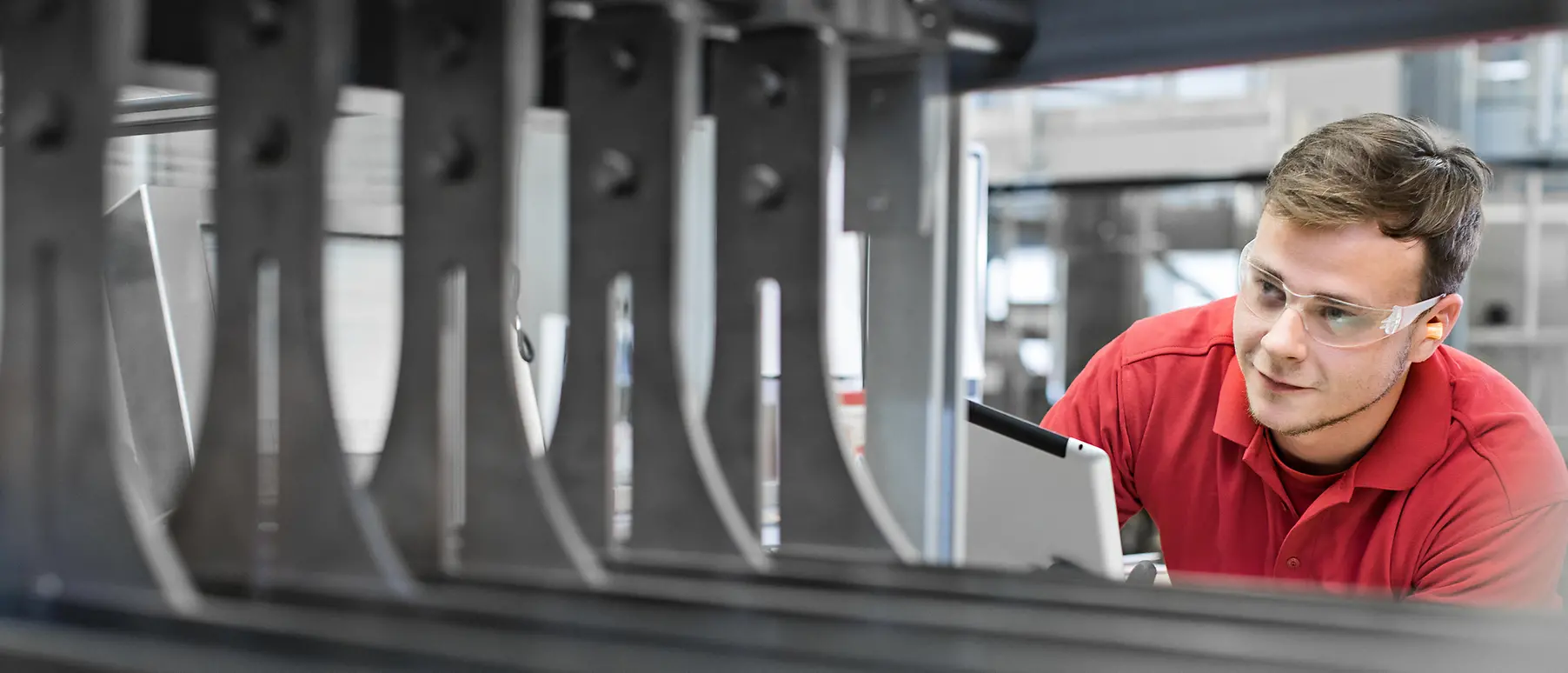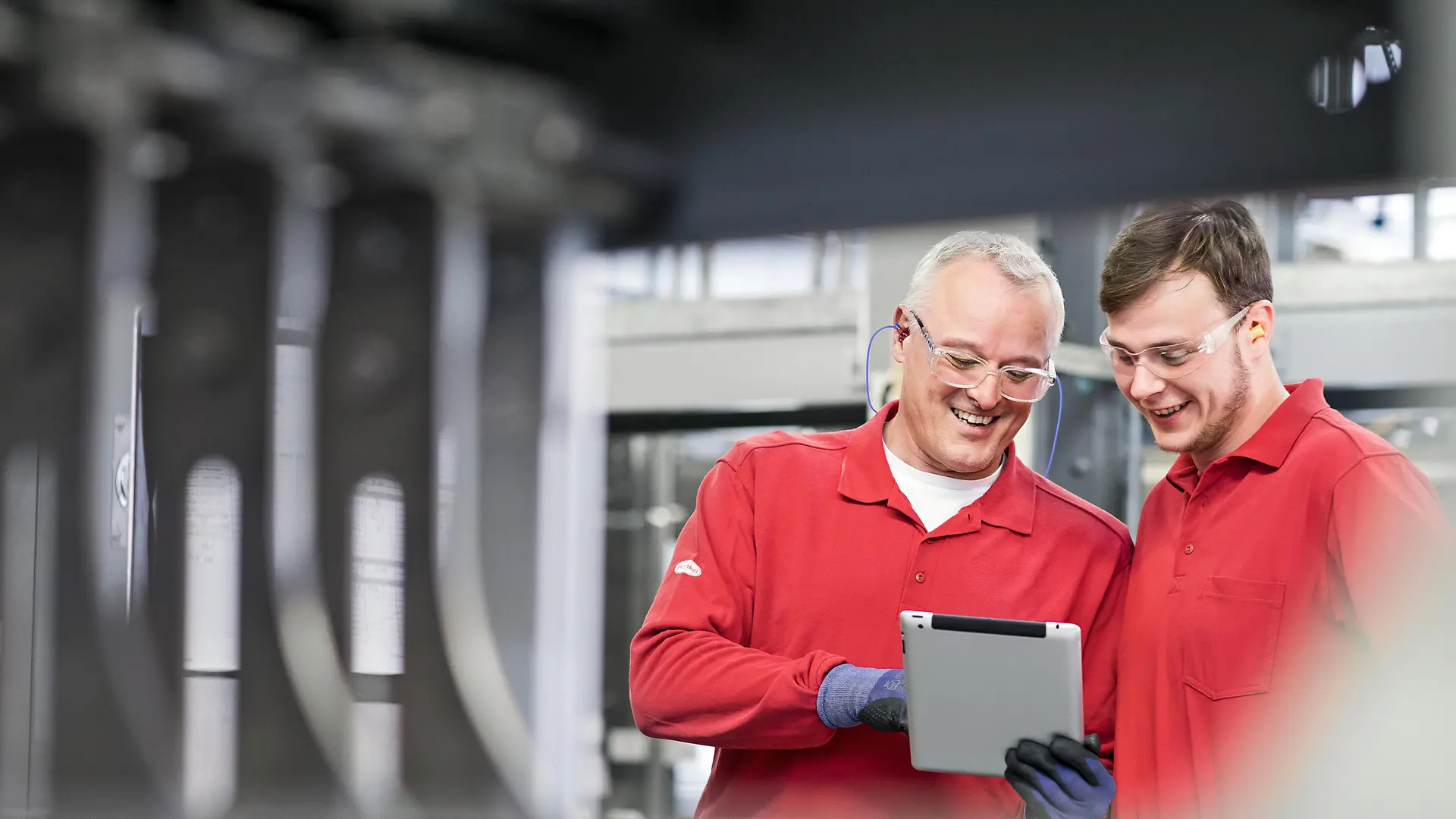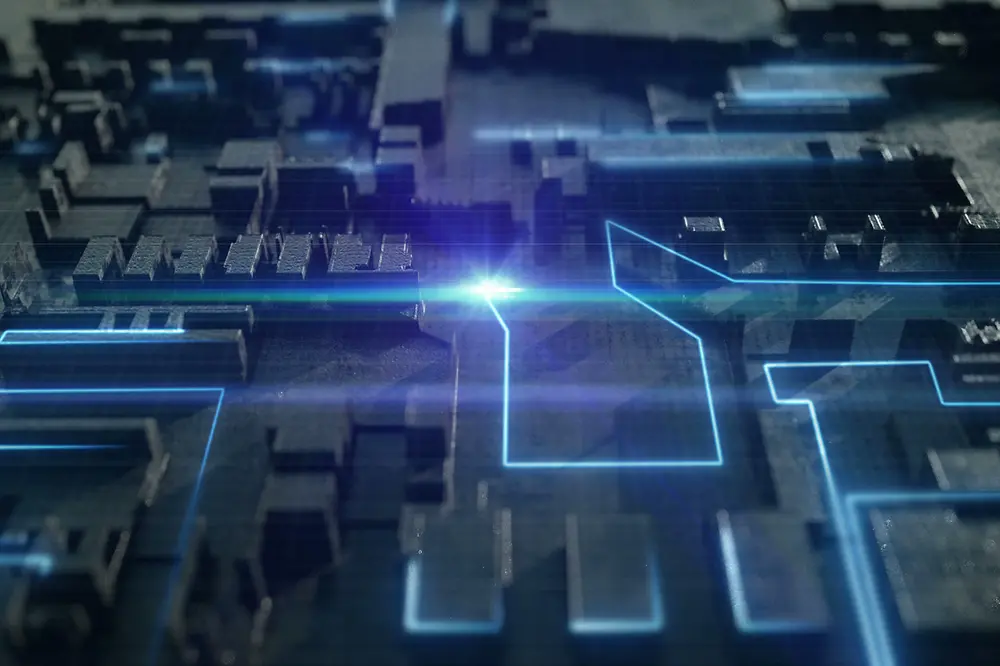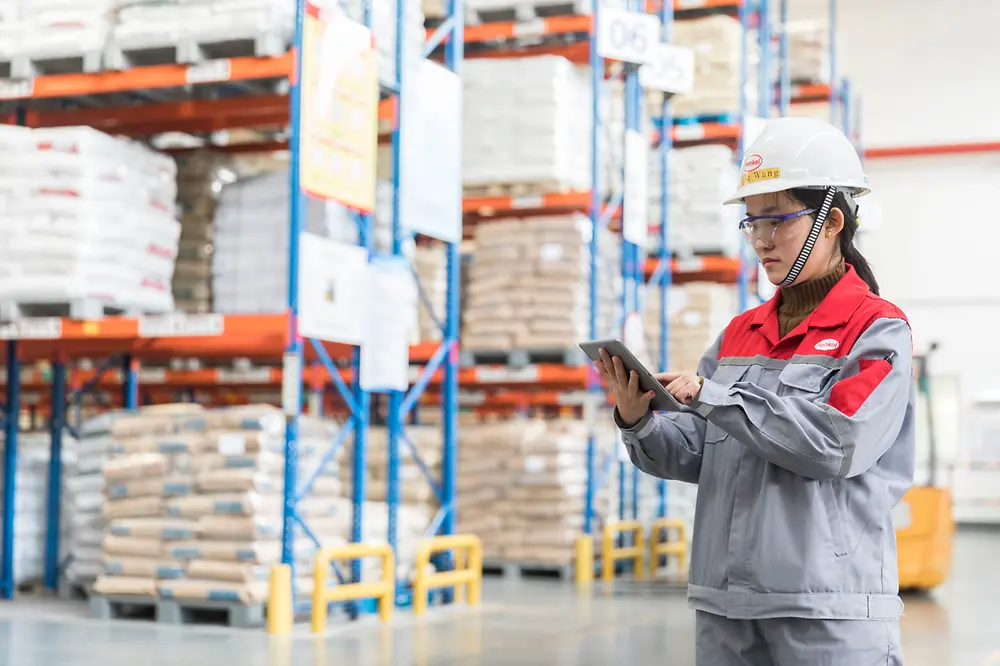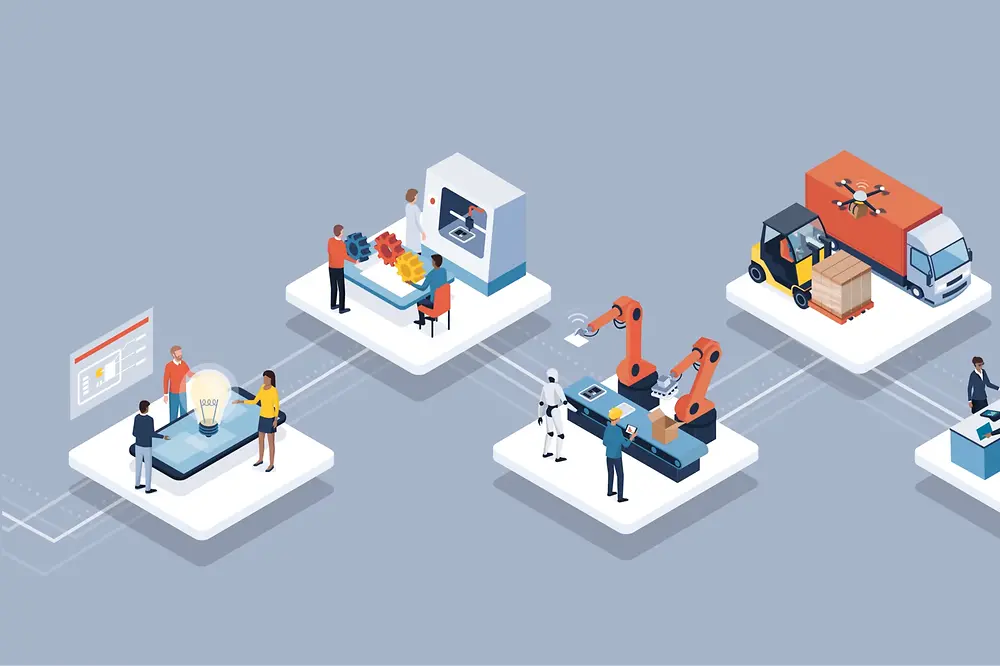Automation requires new competencies
The digital transformation has fundamentally changed the working world. The automation of tasks has become one of the most important components in companies to optimize work processes. Machines transmit information, so that the company can measure efficiency and use algorithms to generate demand forecasts. Each day, the Laundry & Home Care business unit at Henkel alone racks up one terabyte of data. To make the best possible use of it, employees and machines must continuously learn about and adapt to these developments.
When forklifts drive themselves and production line units communicate with one another, does industry still need people? Absolutely, says Wolfgang Weber, who is responsible for the digital transformation of the supply chain in the Laundry & Home Care business unit. He sees automation not as a danger, rather a clear chance to develop: “Automation is definitely not a personnel downsizing program. On the contrary, there are many competencies that we now need to have in-house, which we used to get from service providers and suppliers,” he explains. These aren’t just programmers and specialists, but more generally people who have a fundamental understanding of digital processes: “Every machine is constantly online and transmitting data. Therefore, our employees need to steer these units via web-based interfaces and understand the processes, which is a relatively new skillset,” says Weber.
Automation requires the interaction between man and machine. For instance, plant layouts need to be readily available before they can be uploaded into self-driving vehicles. Employees then define where the vehicles are allowed to drive, simulate the flow of materials and control the applications. “These people have to be able to read the layouts, upload them and operate the forklift. We prepare them for this and bring them into the loop during development. They are also present when the units are installed,” Weber explains. With every production step that Henkel digitalizes, the goal is to make better use of machines, avoid production standstills and improve supply reliability. This, however, doesn’t mean that because of automation, fewer people are involved: “In Düsseldorf, three employees currently operate two high-speed filling lines. No digital technology could replace any of them,” he insists.
Collecting and analyzing data to make it usable
To digitalize the entire supply chain, Henkel needed to start early. For the Laundry & Home Care business unit, experts like Weber are driving Industry 4.0. They have defined three essential topics that created the foundation for automation: first, the “digital backbone” collects continuously generated data from around the world, including all applications, robots and a total of 3,500 sensors in the warehouses and factories. The second area is big data analytics, used to process real-time data, and the third is “paperless operations” – the interface with employees. This includes all the information that people need, but is no longer available as a handbook or printout, such as an efficiency curve on a screen, or information inside an app. The key for Weber and his team is to provide colleagues with the contents that they actually need. “We are not developing expert systems for ourselves. Everything that is created centrally needs to help our colleagues around the world and should be integrated as quickly as possible,” Weber says.
Automation requires “Digital Upskilling”
Since automation creates new areas of responsibility, employees have to be trained accordingly. With the training program “Digital Upskilling,” Henkel assesses the digital competence of all its employees and then offers them a personalized course. Weber and his colleagues have created a lot of educational content. Because not all processes are the same across the supply chain, there is even a dedicated training channel for working with the data collector. “We are dealing with historical structures where, as long as a machine is still working, we don’t replace it. That means we have to enhance the machines and create technical workarounds that our colleagues can operate,” says Weber. According to him, this may not turn every Henkel production plant into a smart factory – but it does mean every site has the basic digital capabilities to be online and access all crucial data.
INDUSTRY 4.0
HOW DIGITALIZATION TRANSFORMS PRODUCTION AND LOGISTICS
It’s efficient, digital, sustainable, connected, and smart. But what exactly is Industry 4.0? It’s the buzzword surrounding the fourth – and completely digital – revolution. After the steam engine and the assembly line, the computer brought about the third industrial revolution. Now, digitalization is transforming the industrial process once more. By taking advantage of this rise in automation, sensorics, data exchange and analytics in real time, companies are producing and delivering products smarter, faster and more efficiently, thereby opening a new world of possibilities.
SPOTLIGHT
MAGAZINE
MAGAZINE
Discover our features with stories and expert insights on innovation, sustainability, digitalization and Henkel’s pioneering culture.
